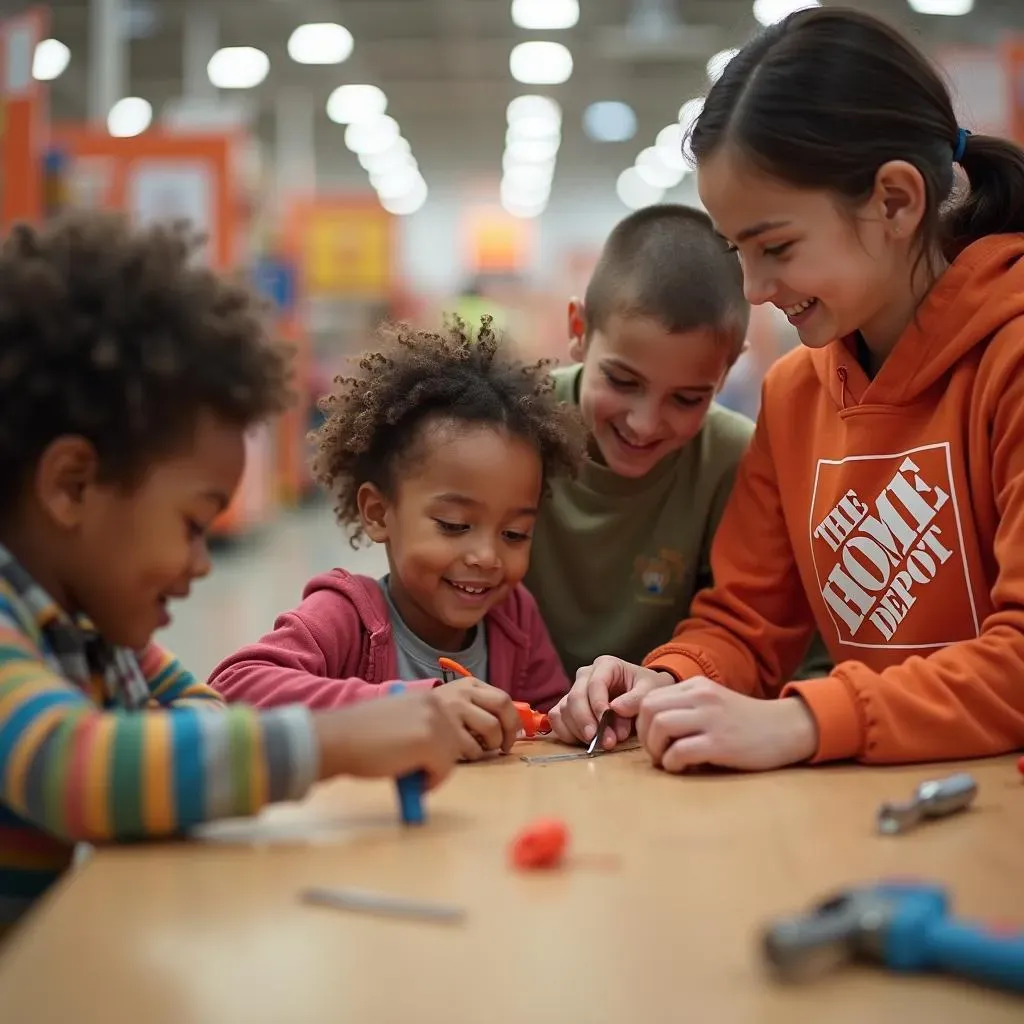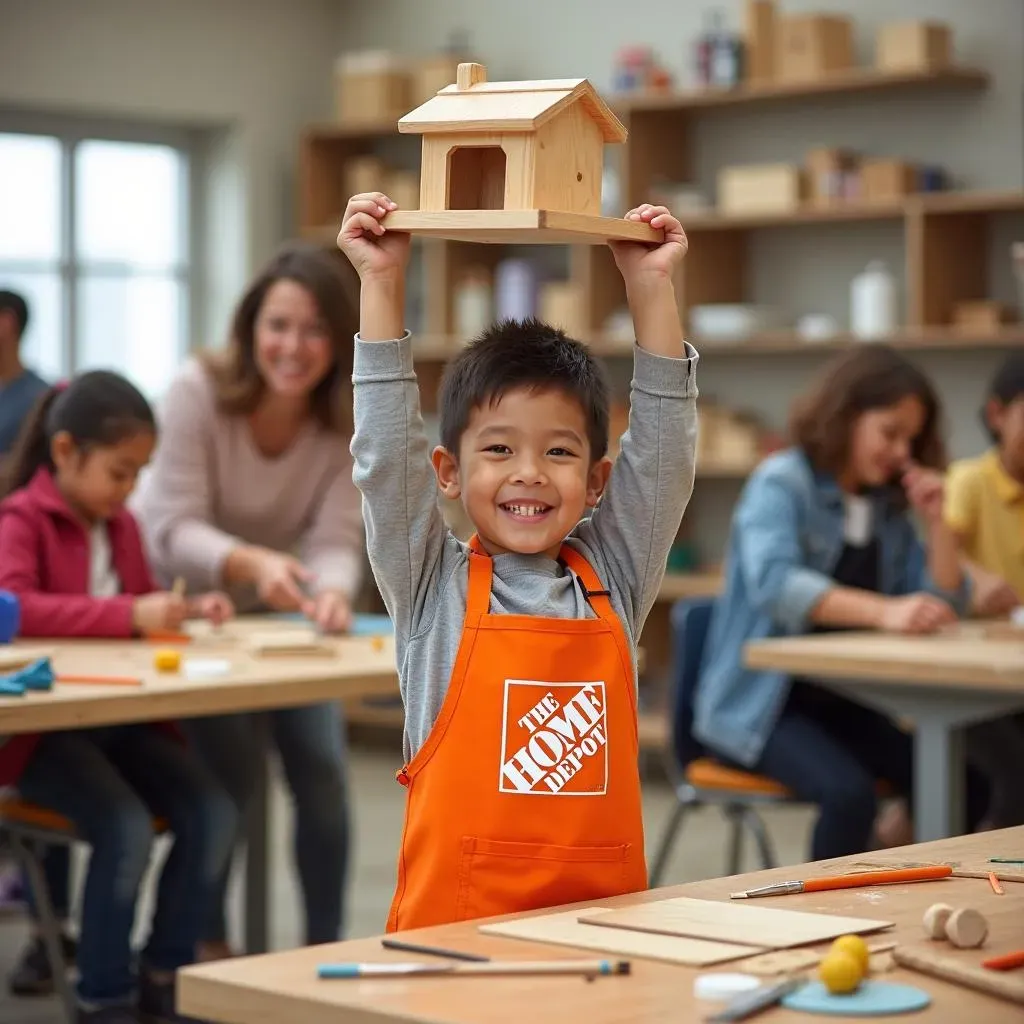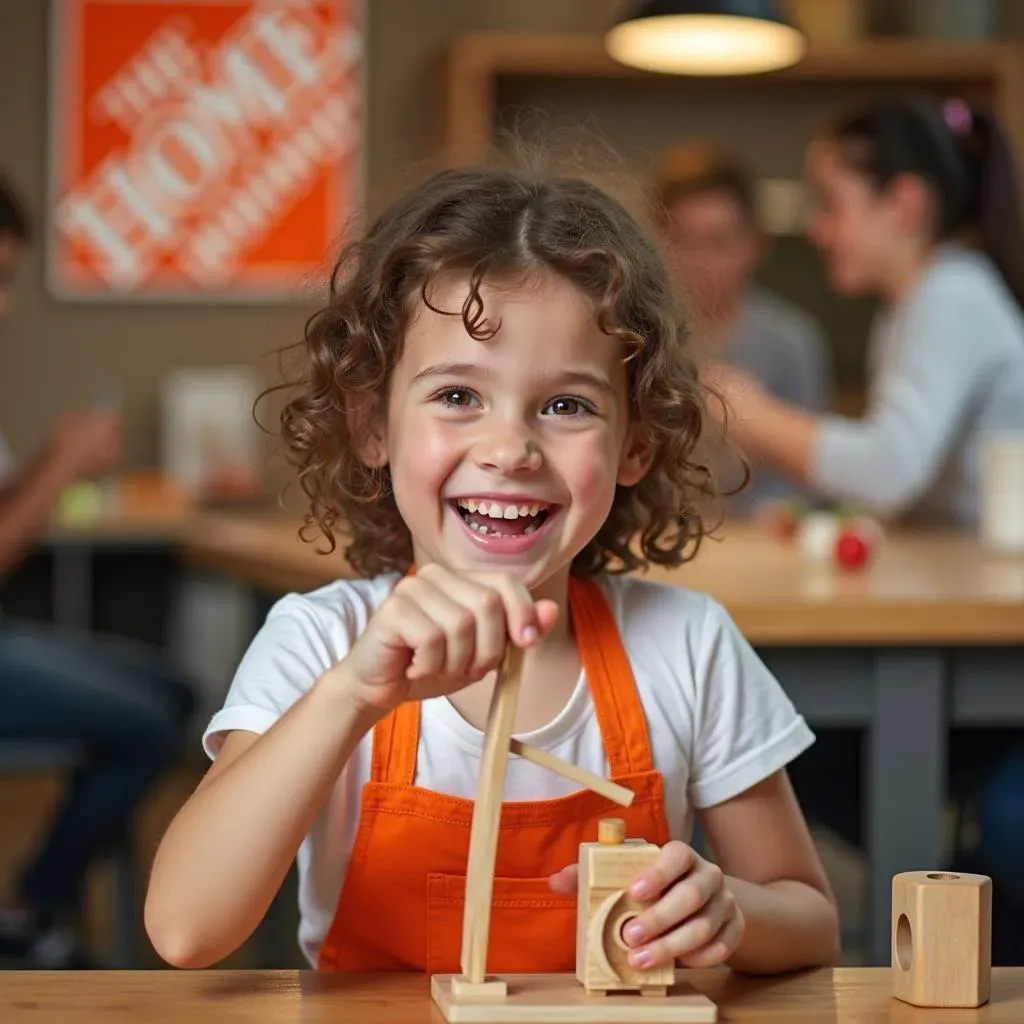Table of Contents
Ever wonder if your little builder is old enough for the Home Depot Kids Workshop? It's a super cool program where kids get to build fun stuff, learn to use tools, and basically feel like tiny construction pros. But, like any good club, there's an age range. The "home depot kids workshop age limit" is something parents often ask about, and it's what we're tackling today. We'll explore exactly what that limit is, what kind of awesome projects your kids can get into, and I'll share some tips to make sure your kiddo has the best possible time. Think of this as your guide to making the most out of those free Saturday morning workshops. Get ready to hammer, saw, and create!
Home Depot Kids Workshop: What's the Age Limit?
Home Depot Kids Workshop: What's the Age Limit?
Okay, so you're wondering about the "home depot kids workshop age limit," right? Well, officially, Home Depot says the workshops are designed for kids aged 5 to 12. That's the sweet spot they aim for, where kids can generally follow instructions and handle the tools with a bit of help. But here's the thing, it's not a strict rule like you need to be exactly within that range to join. I've seen younger kids, even as young as three, participate with a parent's help, and sometimes you'll see older kids tag along with younger siblings. It really depends on the child’s maturity and how comfortable they are around tools. Ultimately, it's about having fun and learning, not about hitting an exact age, as long as they can participate safely and enjoy the project, that's what matters most.
Fun Projects and Skills at Home Depot's Kids Workshops
Fun Projects and Skills at Home Depot's Kids Workshops
What Will They Build?
Okay, so it's not just about the age, it's about what cool stuff they get to make, right? Home Depot’s workshops aren’t just about banging nails randomly. They’ve got a whole lineup of projects, and they change them up every month. Think little toolboxes, picture frames, planters, and sometimes even holiday-themed goodies. It’s like a mini-DIY adventure each time. They’re not overly complicated, so kids can actually do them, but they're also not so simple that they're boring. I remember my niece built a birdhouse one time, and she was so proud, she hung it in her room.
More Than Just Building
It's not just about building things, though that is a big part. It’s also about learning some real-world skills. Kids get to follow step-by-step instructions, which helps with their reading and comprehension. They get to use tools like hammers and screwdrivers, which helps with their fine motor skills. And they’re learning about safety, which is super important. I think it's cool that they get to problem-solve if something doesn’t go as planned, and they learn that it’s okay to make mistakes. It's a whole package of learning disguised as fun.
Skill | Why It's Useful |
|---|---|
Following Instructions | Improves reading and comprehension |
Using Hand Tools | Develops fine motor skills |
Problem-Solving | Builds resilience and critical thinking |
Safety Awareness | Teaches safe practices around tools |
The Joy of Creating
The best part? It's the look on their faces when they finish a project. It’s pure pride, like they’ve conquered the world with a hammer and some wood. It's so much more than just taking home a finished product. It's about the experience, the process, and the sense of accomplishment. And as a bonus, it gets them away from screens for a bit, which is something we all need more of. I always tell people, it's a great way to spend a Saturday morning and get your kids' creative juices flowing. It's a win-win.
Maximizing the Home Depot Kids Workshop Experience
Maximizing the Home Depot Kids Workshop Experience
Registration Tips and Tricks
Alright, so you’re all set to go, but how do you actually make sure you get a spot? These workshops are popular, and they fill up fast. My advice? Register online as soon as registration opens. They usually announce the next month's project and registration dates on their website, so keep an eye out. Don't wait until the last minute because spots can disappear in a flash. Also, if you're planning to go with friends, coordinate your registrations beforehand. It's way more fun when you can all build together. And if, by some chance, the workshop is full, don't fret, sometimes they have walk-in spots available, so it's always worth checking.
Another thing I’ve learned is to arrive a bit early. This way, you can get a good spot, your kid can pick out their apron (it’s a big deal for them!), and you can avoid the last-minute rush. Plus, it gives you a chance to chat with other parents and maybe make some new friends. It’s kind of a social thing too, which I didn't expect at first. Trust me, a little planning goes a long way to make the whole experience smoother and more enjoyable.
Making the Most of the Day
Once you're there, it’s all about diving in and having fun. Encourage your child to follow the instructions, but also let them add their own little touches. It’s their project, after all! If they get stuck, that’s when you can step in and help, but try to let them do as much as possible. I've seen parents get a little too involved, and it kind of takes the fun out of it for the kids. And don't forget to take pictures; they grow up so fast, and it’s a great way to capture those memories. I still have pictures of my nephew with his first Home Depot creation, and they’re priceless.
And it’s not just about the project itself. It's also about the learning and the social interaction. It’s a great way to introduce them to the idea of building and creating something with their own hands. I remember one kid was having trouble with a nail, and another kid showed him how to do it. It’s these little moments that make it worthwhile. And who knows? Maybe you'll inspire a future builder or engineer. It's a great way to spend a Saturday morning and get your kids away from screens for a bit, which is something we all need more of.
Extending the Fun at Home
The fun doesn't have to stop when you leave the workshop! Once you're home, find a good spot to display their project. It gives them a sense of pride, and it’s a reminder of what they accomplished. You can also use the project as a starting point for other crafts and activities. For example, if they built a birdhouse, you can talk about birds and maybe even go bird watching. If they made a planter, you can plant some seeds and watch them grow. It’s all about extending the learning and the fun beyond that one Saturday morning. I remember my friend's daughter used her tool box to store her art supplies, and it was perfect.
Also, don't forget to celebrate their achievements! It’s not just about the project; it’s about the effort and the learning. Maybe have a little "building celebration" at home, or even let them show off their project to family and friends. It builds their confidence and encourages them to keep exploring and creating. And who knows, maybe you'll inspire a future builder or engineer. I always say, it’s the little things that make a big difference. It's a win-win for everyone involved.
Wrapping Up the Home Depot Kids Workshop Fun
So, there you have it, the lowdown on the Home Depot Kids Workshop age limit and all the fun that comes with it. It's more than just building; it's about sparking creativity, learning new skills, and making memories. Whether your child is just hitting the age mark or is a seasoned workshop veteran, these free sessions offer a great opportunity to bond and build something awesome. Now that you know the details, get those aprons ready and prepare for some serious DIY fun. Who knows, maybe your kid will be the next great builder, all thanks to a Saturday morning at Home Depot.
